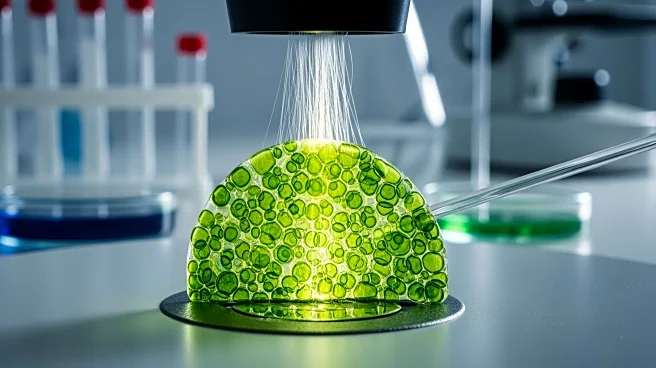What's Happening?
Research published in Nature investigates the effects of glutamine supplementation on Sonchus arvensis L. callus cultures. The study examines changes in morphology, biomass, and secondary metabolite production,
alongside antioxidant and antiplasmodial activities. Glutamine treatment enhanced radical scavenging activity and increased Plasmodium falciparum inhibition. The study highlights the role of glutamine in regulating plant growth and development, with potential implications for developing novel therapeutic agents from medicinal plants.
Why It's Important?
The findings contribute to the understanding of how glutamine can enhance the bioactivity of medicinal plants, potentially leading to new treatments for infectious diseases like malaria. By improving the antioxidant and antiplasmodial properties of Sonchus arvensis L., the study opens avenues for further research into plant-based therapies. This is significant for the pharmaceutical industry, as it seeks sustainable and effective alternatives to synthetic drugs.
What's Next?
Further research is needed to elucidate the molecular mechanisms by which glutamine affects secondary metabolite biosynthesis in Sonchus arvensis L. This could involve exploring the genes and pathways involved, potentially leading to the development of targeted therapies. The study may also inspire similar investigations into other medicinal plants, expanding the scope of plant-based drug discovery.
Beyond the Headlines
The study highlights the potential of using plant callus cultures to produce unique compounds not found in traditional extracts. This approach could revolutionize the way medicinal plants are utilized, offering a sustainable method for producing bioactive compounds. The research also underscores the importance of amino acids like glutamine in plant development, which could have broader applications in agriculture and biotechnology.











